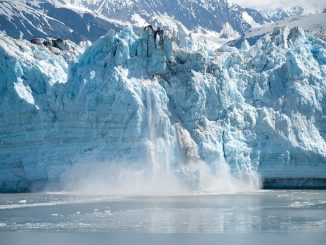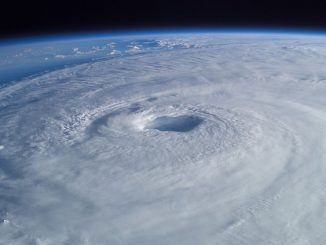QUECHEE, Vt. – The calendar said Memorial Day, but the weather in central Vermont felt more like the Fourth of July last weekend – a little too muggy for hiking the hills, in my opinion, yet perfect for a barbecue, for a dip in the Quechee Club pool, and for various activities planned by the many vacationers who arrived for the holiday.
Maybe Mother Nature is finally ready to cut this place a break.
Tropical Storm Irene, which devastated the southern half of the state last August with rainfall and flooding on a scale that occurs only a few times every century, was just the beginning of this area’s meteorological trials during the past nine months. Winter arrived late and brought only occasional cold snaps that were quickly followed by mild, rainy weather. The ski resorts, which make their own snow when the weather is cold enough, suffered; though Vermont’s final attendance statistics are not yet out, skier visits to downhill resorts were down 15 percent nationally and 13 percent in the Northeast this winter from the previous year, according to the National Ski Areas Association.
The AWOL winter was even worse for aficionados of other activities that depend entirely on natural snow and cold days, such as snowmobiling, cross-country skiing and ice fishing – and for the many local businesses who depend on them.
March in Vermont usually brings a hint of spring with its longer days, thinning snowpack and, most importantly, the smell of wood smoke from the many sugar houses that produce the state’s signature crop of maple syrup and sugar. This year, not so much. A brief cold snap early in the month was followed by an incredible heat wave that was, in its own way, as extreme as Irene. There were 80-degree readings in places like Montpelier that had never before recorded even 60 degrees on the same date. The early heat caused the maples to bud, which ended the sugar season weeks earlier than normal. The result: Vermont’s maple production this year might be not much more than half of 2011’s 1.1 million gallons of syrup, which was the highest in more than 60 years.
April is usually “mud season” up here. This year, the people who worry about such things were concerned about the threat of forest fires instead. Vermont has been lucky to avoid any big blazes thus far. Skies across the state were hazy last Saturday, and we could smell the smoke from fires burning in similarly dry conditions to the west, in Michigan and Ontario.
But by Sunday the wind had shifted, the smoke had cleared and the promising signs of a happy – and happily normal – summer to come were abundant.
The grills were sizzling again at my favorite hamburger stand, the White Cottage, over in Woodstock. This was amazing, considering how little was left of the place after the Ottauquechee River went on its Irene-fueled rampage. Next door, the Dead River Company is rebuilding its home appliance and heating fuel business. Irene’s floodwaters swept a fleet of propane tanks from Dead River’s facility downstream, over at least three dams and through the Quechee Gorge. Just fishing the tanks out of ravine was a big job. Yet Dead River, a Maine company that acquired a local distributor called Leonard’s a few years ago, never missed a single propane delivery to my hillside home this winter.
Back in Quechee, Simon Pearce has reopened his glassblowing workshop in the riverside mill that also houses his signature restaurant. Pearce and his employees labored mightily to get the restaurant reopened shortly after the storm, but the production facilities downstairs were heavily damaged and needed extensive renovation. The nearby Parker House Inn also seemed to be having a good weekend at its own high-quality restaurant, which now has a companion operation: the Irene Bar.
Vermonters themselves are the biggest factor in their state’s rapid recovery. An innkeeper near the village of Weston, where we paused on our drive up to Quechee, told me how private citizens who have construction and excavation businesses used their own equipment on their own initiative to begin removing debris as soon as the water receded. The state, which tends to be surprisingly bureaucratic for such a rural place, relaxed its permitting and environmental rules so its roads could be quickly rebuilt before winter closed in.
Now that the snow has melted away from the streams, the signs of that expedited rebuilding are abundant: All along the Ottauquechee, newly installed crushed rock, called riprap, shores up the riverbanks and supports the formerly washed-out roadways. Here and there, a large tree or boulder sits in midstream where Irene left it. Not everyone is thrilled with the hasty repair job. Some anglers and conservationists are concerned that heavy equipment, wielded hastily by untrained workers, may have damaged important aquatic habitat for trout and other wildlife. They are almost certainly correct – but there is surprisingly little complaint. The scope of the disaster seems to have forged a consensus about priorities.
Federal disaster grants, administered by FEMA, and long-term, low-interest loans offered by the Small Business Administration are playing a significant part in financing the recovery. Tomorrow is the deadline for Vermont businesses to apply for SBA loans to deal with the economic impact of Irene; the application period for loans to repair property damage ended last fall. Officials pleaded with citizens and businesses to take advantage of the help that was available, and by and large, it seems that most did.

Image credit Linda Elkin
Not everyone is out of the woods just yet. On a highway south of the Ottauquechee, we passed a roadside building tilted over on its side, supported by a few improvised pillars of logs and two-by-fours. A brightly lettered sign advises motorists, “We have lost everything our farm and our home. We plan to build again. Donations welcome. Thank u.” There is no address or phone number. I suppose this is because the landowners expect that most such help will come from neighbors who know where to find them.
On the side of the leaning building is another sign, hand-lettered and not easily seen from the road. “Please keep out,” it says. “One of the few things I have left.”
Irene took a lot from Vermont, but, with a few unfortunate exceptions, it also left Vermonters with a lot. It left them with the capacity to pull together and put their state back to work, just in time for what looks to be a happily normal northern New England summer.
- Bulenox: Get 45% to 91% OFF ... Use Discount Code: UNO
- Risk Our Money Not Yours | Get 50% to 90% OFF ... Use Discount Code: MMBVBKSM
Disclaimer: This page contains affiliate links. If you choose to make a purchase after clicking a link, we may receive a commission at no additional cost to you. Thank you for your support!





Leave a Reply